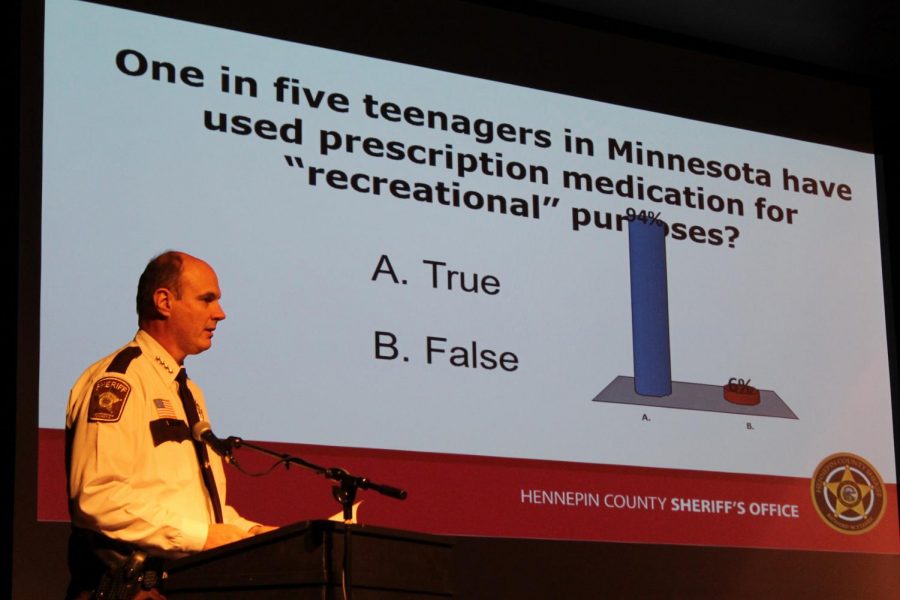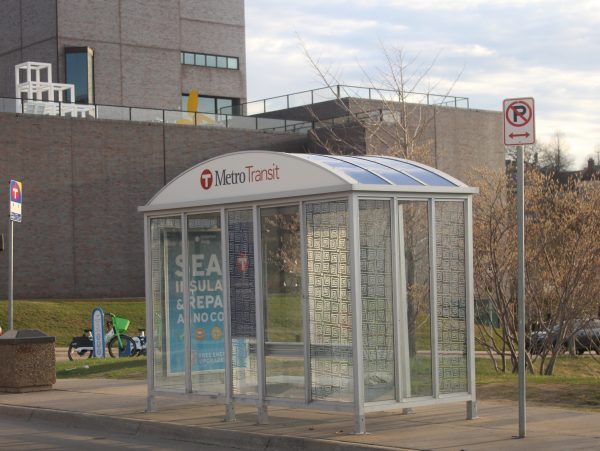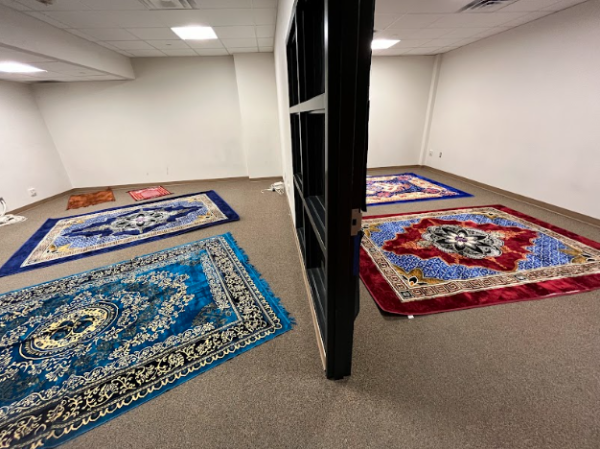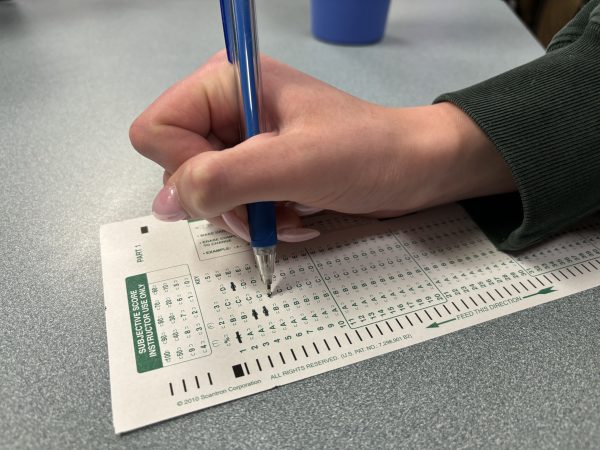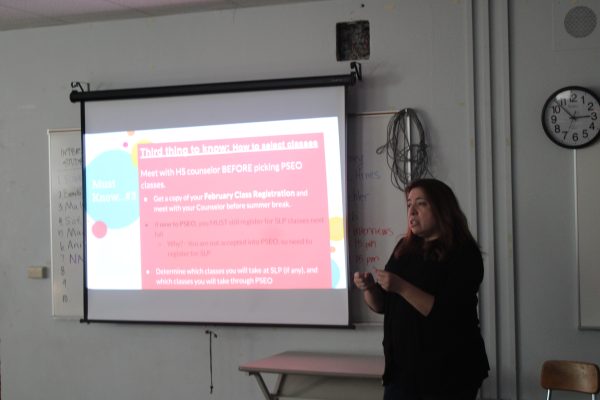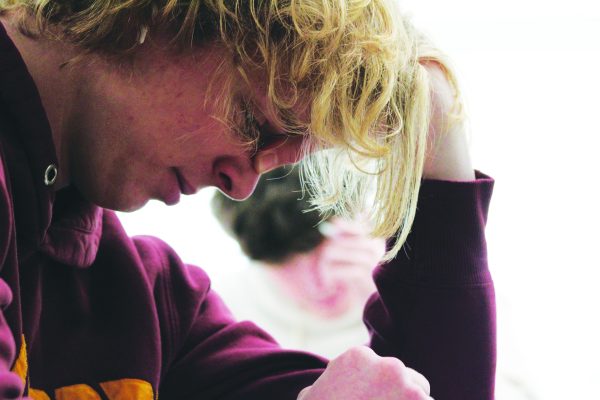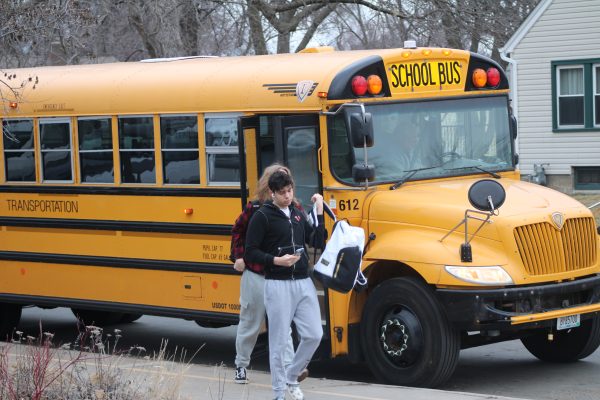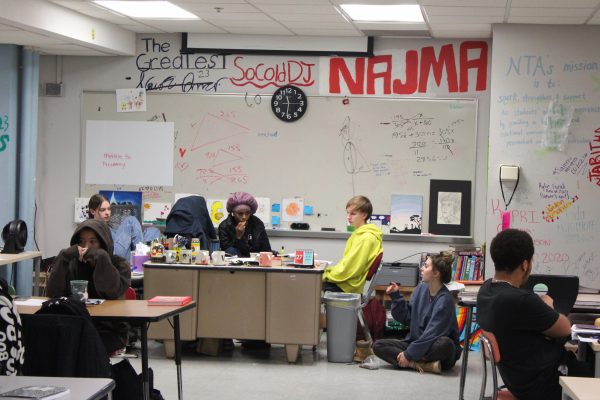#Noverdose campaign raises awareness at town hall
Community combating opioid addiction
Opioids meeting held at St. Louis Park High School auditorium Feb. 7. The meeting discussed rising drug use within the city.
February 20, 2018
According to chief division counsel for the FBI in Minneapolis Jeffrey Van Nest, the town hall setting provides a way for the community to learn about the dangers of opioids and publicize the danger.
“Raising awareness is a huge part in letting people know that there is a danger out there that they might not be aware of,” Van Nest said.
According to director of communications at the Hennepin County Sheriff’s office Michael Sheehan, the #noverdose campaign was created to combat opioid addiction.
“The no overdose campaign was started by the sheriff’s office, and we actually call it the #noverdose because of the social media, and we want that to take root, but we started it last year because in 2016 we had, I think at the time, 39% increase in opioid related deaths,” Sheehan said.
According to junior Tahra Wright, more students should attend events like the town hall meeting because it will educate them on how opioids affect themselves and the community.
“It’d be easier if the students actually attend and see what’s going to happen to them, and it not only affects their bodies in the inside but affects their mentality and their brain,” Wright said. “If they attend these meetings and see what will happen to them they might stop doing that stuff.”
Rhoda Michaelynn, a parent who spoke at the town hall, said the event was about advocacy and spreading awareness of opioid addictions.
“It’s about spreading the word to try and protect other kids since I can’t protect mine since my son died of an overdose. I feel as a parent, as a community member there’s much we can all do,” Michaelynn said.
According to Sheehan, the number of opioid related deaths has risen these past few years.
“In 2015 the number was 110, and in 2016 the number was 163, and we made it to reduce the number of opioid related deaths. At the end of 2017 the number was actually 162 and we’re not done counting yet so we are obviously continuing the (#noverdose) program,” Sheehan said.
Van Nest said the opioid epidemic is a public health crisis, and it’s important that young teenagers are aware of the dangers of opioids.
“So a lot of what we’re doing on the community outreach side is we are trying to get in front of audiences who can benefit from this material,” Van Nest said.
Wright said community members should use opioids responsibility and only when necessary.
“They should know that it’s only prescribed by doctors because they have a serious actual condition so they can get better but not use it for their own needs,” Wright said.
Sheehan said that it’s estimated that 70% of people who have an opioid addiction problem have taken opioids from their family. Sheehan said that ridding those medicines from the household will reduce the ability for people to abuse the substance.
“There are actually 11 drug disposal boxes that are in Hennepin county. As we’re moving forward, we are actually kind of shifting focus to what are called medicine deactivation pouches so that you can use it at home to put unused medicine in and properly dispose it where it’s environmentally friendly but then also getting unused medicines out of a potential supply of other people,” Sheehan said.
According to Michaellyn, parents have a responsibility to role model how to handle stress in healthy ways and to prepare their children for stressful encounters.
“Everybody has hard times and I think that we can do more as parents around the dinner table to say ‘I had a really crummy day, here’s how I’m going to help my emotional pain,’” Michaelynn said. “The best thing we can do is prepare our kids to know how to address that, how to get support, who they can go to to talk about it.”



